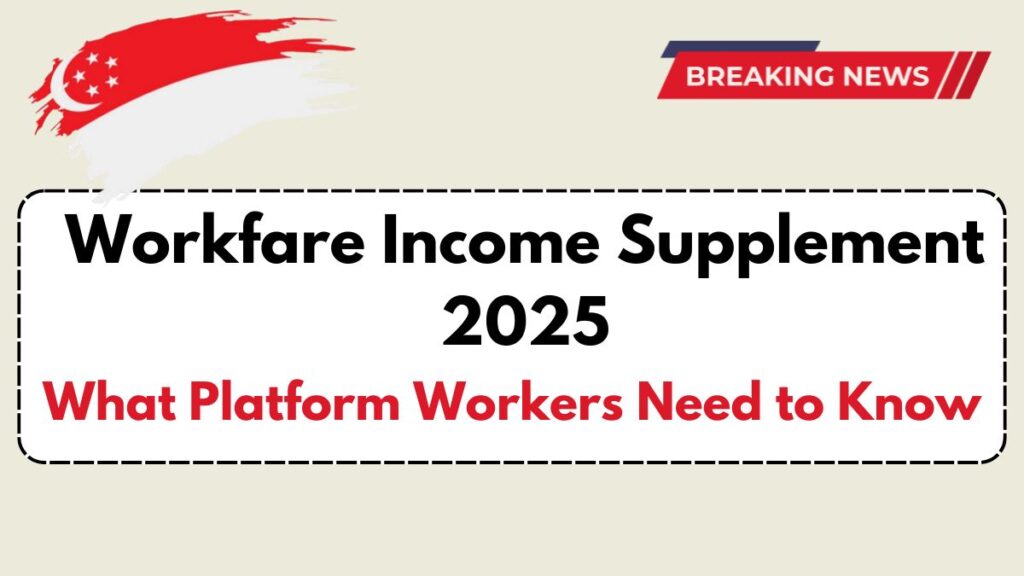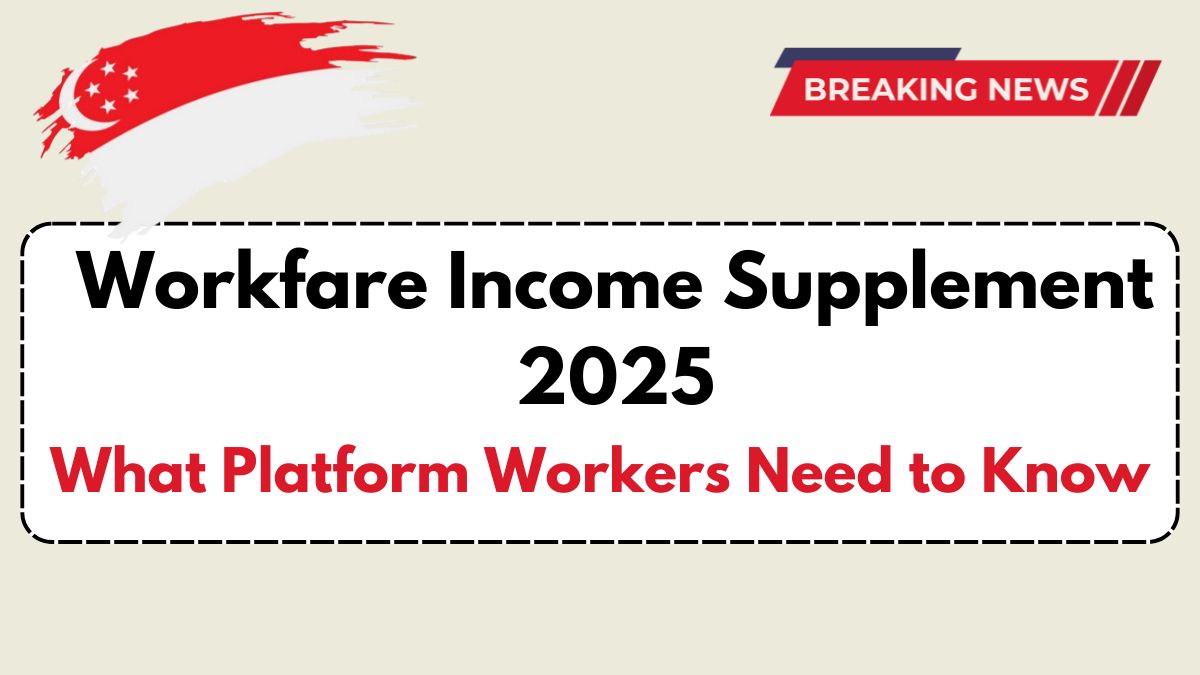The Workfare Income Supplement (WIS) scheme in Singapore is set to undergo significant enhancements in 2025, aiming to provide better financial support and social security for platform workers. These modifications include a shift from annual to monthly payments and adjustments to Central Provident Fund (CPF) contributions, ensuring better alignment with traditional employees’ benefits.

Key Changes to the WIS Scheme for Platform Workers
The upcoming changes to the WIS scheme will create a more structured and beneficial support system for platform workers. Below are the main revisions:
- Monthly WIS Payments: Starting in 2025, eligible platform workers will receive their WIS payments on a monthly basis instead of the previous annual disbursement. This transition ensures a steady financial inflow, making it easier for workers to manage their monthly expenses.
- Mandatory CPF Contributions: Platform operators will be required to deduct CPF contributions from platform workers’ earnings. This means platform workers will receive CPF contributions similar to traditional employees, enhancing their retirement and healthcare savings.
- Incremental Increase in WIS Payments: By 2029, platform workers who contribute to CPF will see higher WIS payments compared to employees, ensuring equitable benefits across employment types.
Eligibility Criteria for WIS as a Platform Worker
To qualify for WIS under the updated scheme, platform workers must meet the following conditions:
- Singapore Citizen: Only Singaporean citizens are eligible for WIS benefits.
- Age Requirement: Applicants must be at least 30 years old by the end of the work year. Persons with disabilities are eligible regardless of age.
- Income Threshold: The monthly earnings, including net income from platform work, must range between $500 and $3,000. Additionally, the average gross monthly income over the past 12 months should not exceed $3,000.
- Property Ownership: The annual value of the applicant’s property should not exceed $21,000 as of December 31 of the preceding year. Applicants should also own no more than one property.
- Marital Considerations: If married, the applicant and their spouse must jointly own only one property. Additionally, the spouse’s assessable income must not exceed $70,000 in the Year of Assessment before the current year.
- Special Conditions: Individuals with disabilities, caregivers, and ComCare recipients can qualify even if their earnings are below $500 per month.
WIS Payment Structure Based on Age Groups
The WIS payouts vary by age group to ensure fair distribution of financial support. The maximum annual payments for platform workers are as follows:
| Age Group | Maximum WIS Payment (Annual) |
|---|---|
| 30 – 34 years | Up to $1,633 |
| 35 – 44 years | Up to $2,333 |
| 45 – 59 years | Up to $2,800 |
| 60 years & above | Up to $3,267 |
| Persons with disabilities | Up to $3,267 |
Distribution of WIS Payments
The WIS payments are allocated in a structured manner to support both immediate financial needs and long-term healthcare savings:
- 10% of the payment is credited to the worker’s PayNow NRIC linked bank A/C. If no PayNow NRIC linkage exists, the funds will be transferred to a registered bank account or disbursed through GovCash.
- 90% of the payment is deposited into the worker’s MediSave account to enhance healthcare security.
Monthly Payment Schedule
Starting from March 2025, Workfare Income Supplement (WIS) payments will be distributed on a monthly basis according to the following schedule:
| Work Month | Payment Month |
| January | March |
| February | April |
| March | May |
| April | June |
| Subsequent months | Follows the same 2-month gap |
For workers receiving payments via GovCash, disbursement will begin in the first week of the designated payment month.
Steps for Platform Workers to Ensure WIS Compliance
Platform workers should take the following steps to ensure smooth WIS eligibility and CPF contributions:
- Automatic Eligibility Assessment: The CPF Board will determine eligibility based on income information provided by platform operators. Workers do not need to submit additional documents.
- Monitor CPF Contributions: Workers must verify that platform operators are correctly deducting and contributing CPF amounts. If discrepancies arise, they should immediately contact the operator or report the issue to the CPF Board.
Singapore’s Commitment to Platform Workers
These enhancements to the WIS scheme reflect Singapore’s dedication to providing fair financial support and social security to platform workers. By aligning CPF contributions and WIS payments with traditional employment structures, the government ensures that all workers receive adequate retirement and healthcare benefits.
Frequently Asked Questions (FAQ)
1. What is the main advantage of receiving WIS payments monthly instead of annually?
The shift to monthly payments provides platform workers with a more stable and predictable financial support system, reducing financial strain and improving cash flow management.
2. How will CPF contributions benefit platform workers?
Mandatory CPF contributions will help platform workers build their retirement and healthcare savings, ensuring long-term financial security similar to traditional employees.
3. What happens if my platform operator does not deduct CPF contributions correctly?
Workers should verify their CPF deductions and contact their platform operator for corrections. If discrepancies persist, they should report the issue to the CPF Board for resolution.
4. Can I receive WIS payments if I earn less than $500 per month?
Yes, individuals with disabilities, caregivers, and ComCare recipients may still qualify for WIS payments even if their earnings are below $500 per month.
5. How can I check my WIS payment status?
Workers can check their WIS payment status through CPF Board’s online portal or by contacting CPF customer service.
By implementing these changes, Singapore is reinforcing its commitment to improving financial stability and social security for platform workers, ensuring that they receive fair and consistent income support.
For More Information Click Here
Pari is a passionate writer known for captivating stories that blend imagination and reality. Inspired by travel, history, and everyday moments, Pari crafts narratives that resonate deeply with readers.
